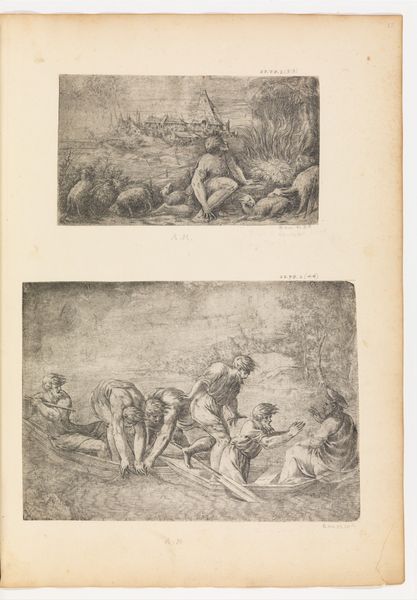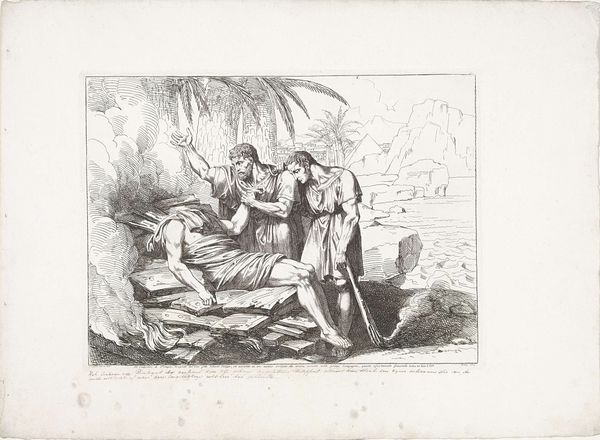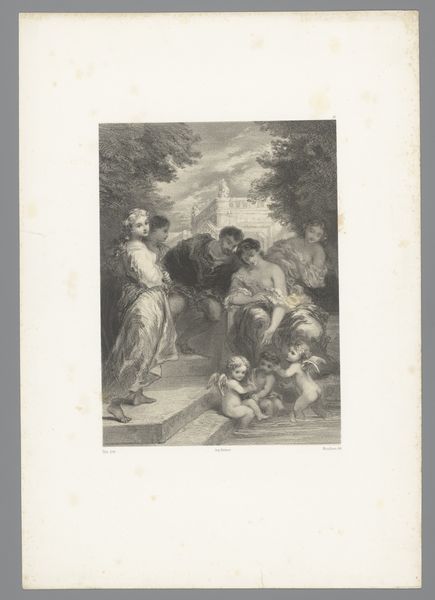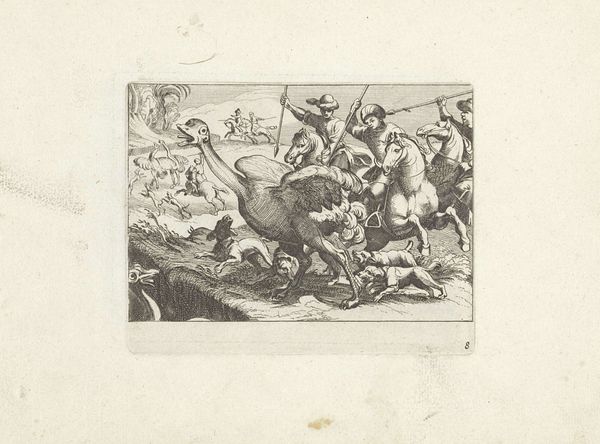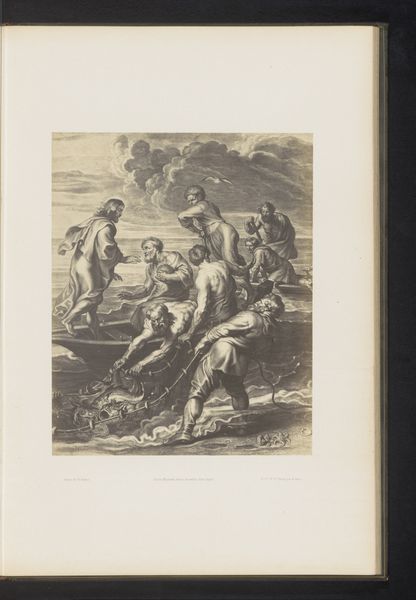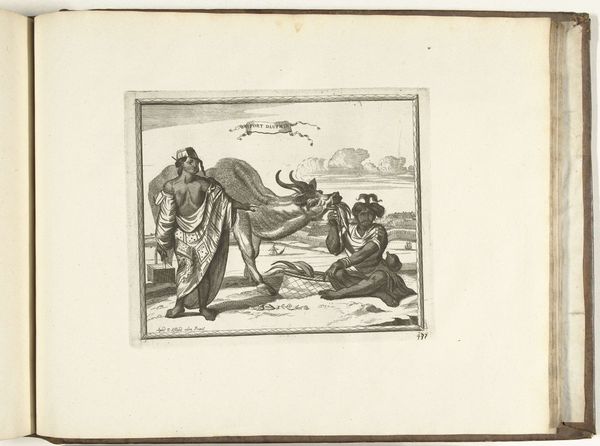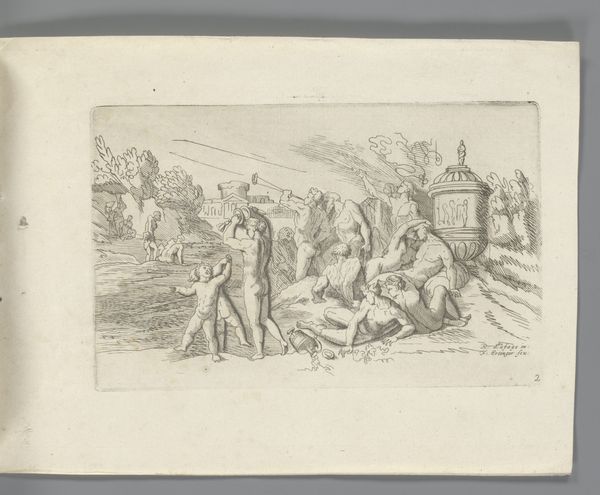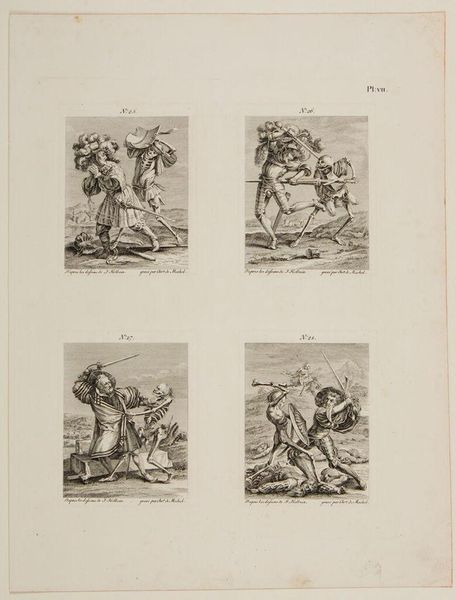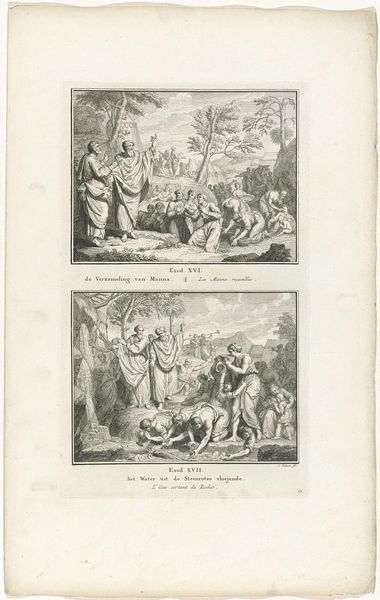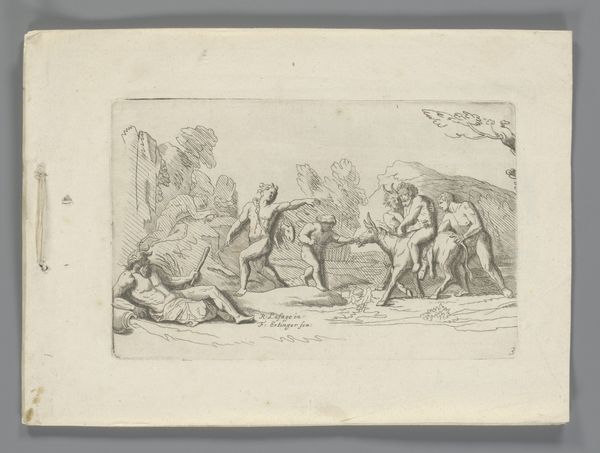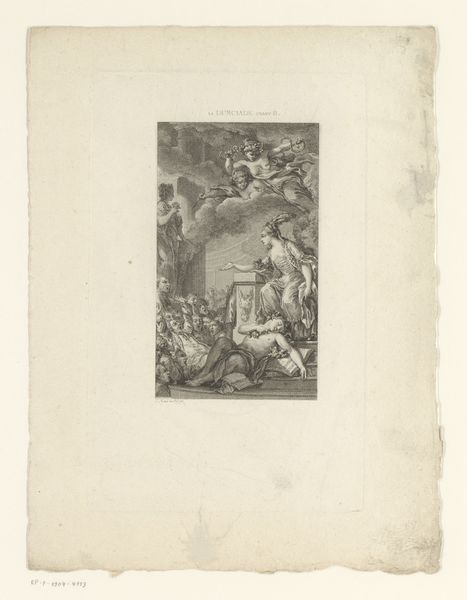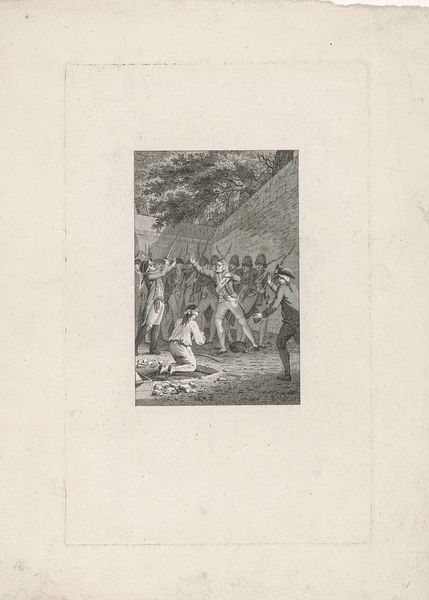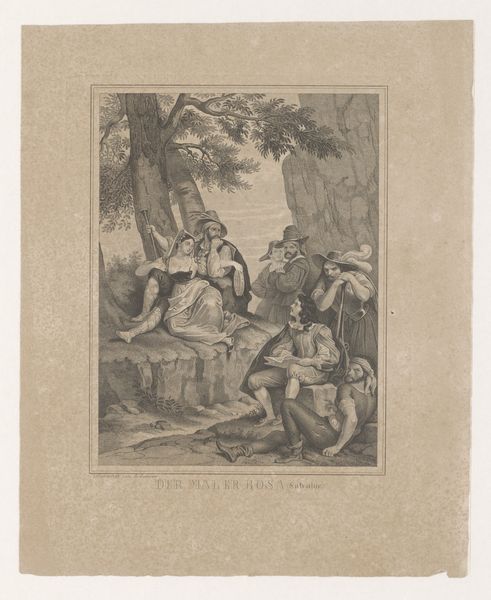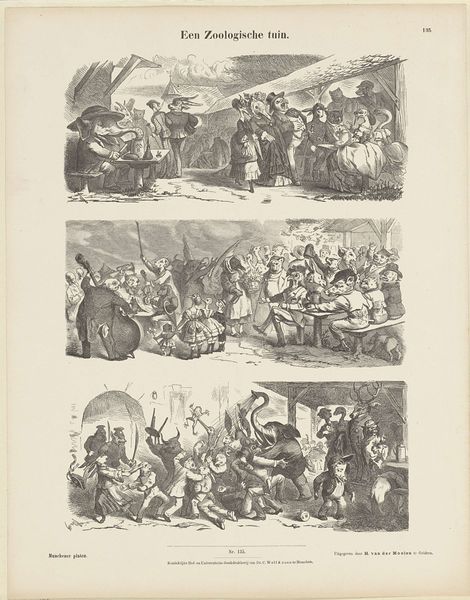
Christus roept apostelen onder de vissers / Maria en de vier apocalyptische dieren c. 1709 - 1740
0:00
0:00
gilliamvandergouwen
Rijksmuseum
print, engraving
#
narrative-art
#
baroque
# print
#
old engraving style
#
figuration
#
history-painting
#
engraving
Dimensions: width 172 mm, height 90 mm, height 79 mm, width 112 mm
Copyright: Rijks Museum: Open Domain
Editor: This print, "Christus roept apostelen onder de vissers / Maria en de vier apocalyptische dieren," by Gilliam van der Gouwen, circa 1709 to 1740, juxtaposes two seemingly unrelated scenes. The upper panel depicts Jesus calling the apostles, while the lower shows Mary and the four beasts from Revelation. It’s... unusual. How do you interpret the combination of these scenes? Curator: It's crucial to consider this juxtaposition within the religious and social context of the period. Images like these weren't just illustrations, but tools for reinforcing a specific theological viewpoint. Think about how power dynamics play out in the presentation of these narratives. Christ calling the apostles—what does it mean for ordinary men to be chosen? Editor: So, the artist is intentionally connecting earthly calling with divine authority? Curator: Exactly. And look at Mary surrounded by the apocalyptic beasts. Consider what they represent – dominion, strength, martyrdom, and evangelism – all synthesized into a symbolic portrait of the Church. This becomes a visual statement on the Catholic Church's role as divinely ordained. What does it say about control of belief, or even colonial narratives? Editor: It is a very Catholic interpretation, positioning Mary and the Church as central to salvation. Did the engraver maybe make prints that echoed similar political power structures of the time? Curator: Precisely. Images circulated and shaped thought, defining and sometimes confining individuals' understanding of their place in the world and the cosmos. How might such an image influence a person living in the 18th century, especially regarding obedience and power? Editor: That gives me a lot to think about, recognizing the ways religious art could perpetuate and support existing power structures. Curator: Absolutely. Examining the work through the lens of power structures invites us to reflect on our own contemporary moment.
Comments
No comments
Be the first to comment and join the conversation on the ultimate creative platform.
